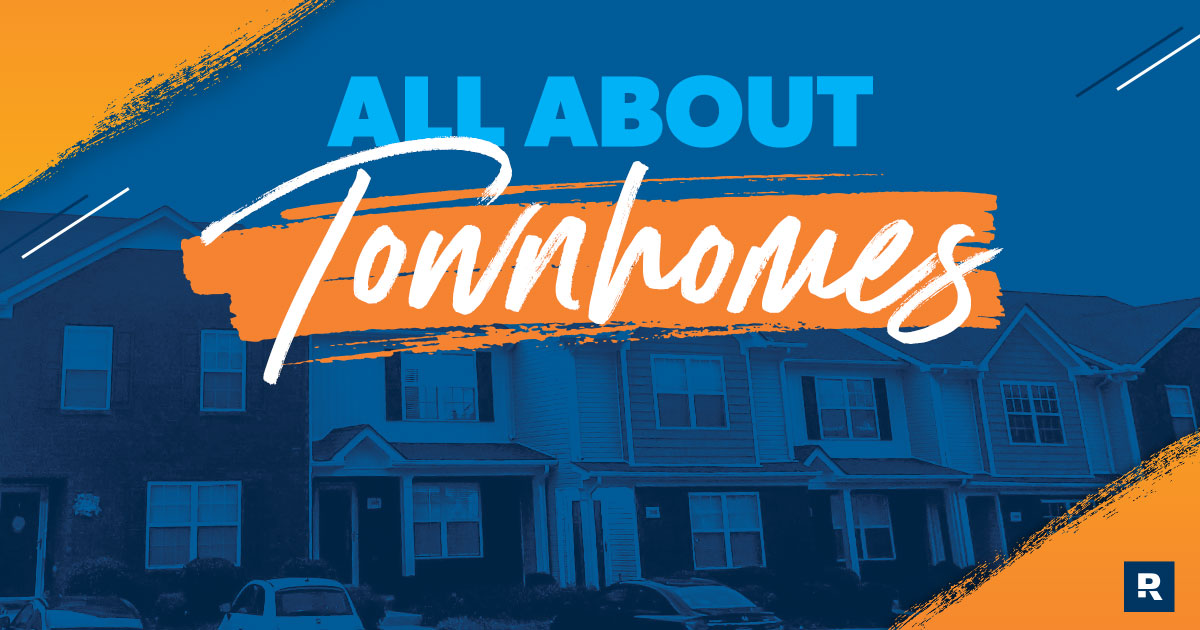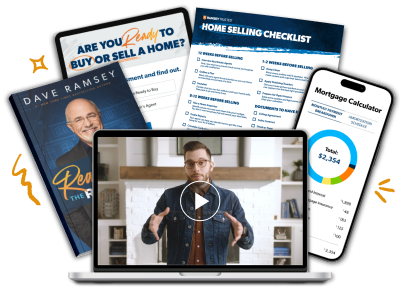
What is a townhouse? It’s one of the most popular types of real estate right now. You see them popping up everywhere, from urban areas to the suburbs. They’re a great option for people who might be first-time home buyers or folks looking to downsize after their kids have grown up and moved out. Investors love them, too.
But what is a townhouse? Well, looking at it literally, it’s a house in town. Back in the day, an English lord would live in a castle or a manor house on a country estate—think the giant manor on that show Downton Abbey. But, occasionally, he’d have business in town, so he’d also keep a house there. A townhouse. Get it? Pretty clever, right? That’s how it all started, at least.
These days, a townhouse is generally defined as a single-family residence with at least two floors and a shared wall with another house. As the name suggests, they’re most commonly in urban and suburban areas where land is hard to come by and housing prices are high.
Wait. Isn’t that a condo?
That’s a great question. But no, it’s not a condo. There are some similarities. For instance, both condos and townhomes are usually part of a complex or community with common areas like pools or clubhouses. And folks who live in condos and townhomes must pay dues to a homeowners association (HOA) that manages these things.
But when you own a condo, you only own the inside of your residence. The condo board or HOA owns and manages the exterior of the building and all the common areas.
With a townhouse, you own the outside of the building and the plot of land it sits on. That means, as a townhouse owner, you’re generally more free to do what you want with your property. The key word here is “generally,” which we’ll get into later.
What are the advantages of owning a townhouse?
There are several advantages to choosing a townhouse instead of a single-family home, especially if you don’t need a ton of yard for kids and dogs to play in.
-
They’re more affordable. Townhomes, like condos, can be much less expensive compared to a free-standing house in the same zip code. You’re not paying for a huge lot and four walls—only a small front and back yard.
-
They’re easier to maintain. Less property equals fewer things you need to care for. Landscaping a front yard that’s usually the size of a postage stamp takes a lot less time, energy and money than maintaining a huge yard on a corner lot. Plus, landscaping services may be included in your HOA dues.
-
Townhomes are more energy-efficient. With less space to heat and cool, your monthly utility bills will be much smaller than they would be with a huge house.
-
It’s the best of both worlds. Owning a townhouse is a good way to split the difference between a free-standing home and a condo. You get the benefits of more space and greater control over your property, along with lower maintenance costs and the built-in community that comes with a condo.
Want More Expert Real Estate Advice?
Sign up for our newsletter! It’s packed with practical tips to help you tackle the housing market and buy or sell your home with confidence—delivered straight to your inbox twice a month!
Who would want to buy a townhouse?
So, what is a townhouse good for? Lots of things for lots of different people. Here’s a short list of the types of folks who might want to buy one:
-
First-time homeowners: Townhomes are a great option for someone who’s ready to buy their first house. If you’re a first-time homebuyer, you can check out our Home Buyer’s Guide here.
-
People looking to downsize: Have your kids left the nest? Do you have a huge house you just don’t need anymore? A townhouse is a great way to get into something smaller and easier to maintain.
-
Investors: A townhouse can be a great investment property, especially if it’s in a desirable area like a major urban center or near a college where it can be easily (and profitably) rented out.
-
People looking for a second home: Hey, this is the old-school way to use a townhouse. You can live like an English baron! You too can live in your country manor and visit your townhouse when you’re in town on business. Or vice versa! Or you could also buy a townhouse in your favorite vacation spot and rent it out when you’re not there.
Are there any downsides to owning a townhouse?
Well, there are downsides to just about everything. You always want to weigh them against the benefits, especially when you’re deciding something as important as whether or not to buy property. So what do you need to look out for?
-
HOAs: While the homeowners association rules may not be as strict as those for a condo, there are rules. And if you’re the type who doesn’t want to be told what to do under any circumstances, then a townhouse with an HOA may not be for you. Rules might include what type of fencing (if any) you can put around your yard, what color you can paint the exterior of your home, and what type of mailbox you put on your curb. You’ll definitely want to check out the HOA and see how it compares to others in your area.
-
Extra cost: Speaking of homeowners associations, there will be an extra monthly (or sometimes quarterly) fee added to the cost of your mortgage. Think of it this way: The more amenities the community provides, the higher your HOA fees will be. You could end up paying for anything from security cameras in common areas to pools, fitness centers and playgrounds. If you don’t need any of those things, save a few bucks on your HOA fees by choosing a community without them.
-
Less privacy: If you own a detached, single-family home on a half-acre lot, you can put up a big fence and never talk to your neighbors—if that’s your thing. And if you value this type of privacy, a townhouse may not be for you since you’ll most likely share at least one wall with a neighbor.
Is there anything else I should know?
Have we discussed property taxes? Let’s do that. A townhome is taxed just like any other piece of residential real estate. The government agency where you live—usually the city or county—will send someone out to assess the property to determine how much the home is worth. They’ll look at things like:
-
Square footage
-
Number of rooms
-
Size of the lot
-
Surrounding neighborhood
Since a townhouse is almost by definition on a smaller plot of land than a single-family home in the same neighborhood, you can expect property taxes to be lower. However, taxes vary from city to city, county to county and state to state. A good real estate agent will be able to answer any questions you might have about property taxes in your neighborhood. Also, most mortgage lenders will set up your property taxes to be paid as part of your monthly mortgage payments. That means you won’t forget to pay them. Sweet! Talk to our friends at Churchill Mortgage. They’ll get you set up.
Are you ready to buy a townhouse?
If you think you’re ready to buy a townhouse, that’s awesome. When buying any kind of home—whether it’s a townhouse or a condo or a mansion—here are a few things we recommend:
-
Be debt-free.
-
Have an emergency savings fund with enough liquid money to cover three to six months worth of expenses.
-
Have enough savings (in addition to your emergency fund) to make at least a 10% down payment. But 20% is better.
-
Get a 15-year fixed-rate mortgage with a monthly payment that’s no more than 25% of your take-home pay.
If that sounds like you, talk to one of our RamseyTrusted® real estate pros. They’re the best agents in your area, and they can’t wait to help you!
Find expert agents to help you buy your home.
Did you find this article helpful? Share it!

We Hear You!
We’re considering adding the ability to save articles to your Ramsey account.




